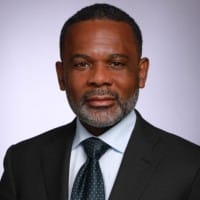We all know the role of HR is in flux in response to the tremendous transformation nearly every industry has undergone over the past three years.
While it may seem like the challenges are stacked against you, Eightfold AI’s new Chief People Officer, Darren Burton, believes that HR teams can drive massive talent transformation. A former CHRO for professional services at KPMG, Burton strongly believes in the power of data- and AI-enabled transformation, saying it can significantly impact employee engagement, retention, and business outcomes.
Burton recently joined our podcast to talk about talent transformation. Here’s what he had to say about how modern HR leaders can use data-driven insights to step into the role of business champions.
From business facilitators to business champions in the boardroom
Starting from where we are now, HR leaders have the greatest opportunity yet to map their work to the strategic success of their organizations.

Throughout his 25-year career, Burton said he’s seen a shift in the expectations of HR leaders from filling the need for talent to being more of a strategic business champion. This means making intelligent decisions on how to attract, engage, and move talent through the organization to achieve business goals.
That also means deeply understanding the business, the market, and the challenges of providing the right talent. Burton said HR leaders need to speak the organization’s language and use data to answer fundamental questions from business leaders and external board members. According to insights from Accenture, 89 percent of global CEOs and other C-suite leaders believe CHROs should play a key role in helping organizations ensure profitable growth.
In particular, upskilling and reskilling can’t be in a vacuum anymore. HR teams are strategic about what skills are essential now, and what skills will be needed in the future to innovate and meet business objectives while being ready for the next big disruption. At this point, no one should be surprised when business and operational needs change on a dime in response to global events.
The shift to a skills-based workforce and how it will change the game
Building on that theme, Burton said that talent intelligence needs to be built on the big “S” word: skills. Data becomes critical when thinking about job roles and descriptions in a new way. Defining a role’s taxonomy needs to focus on the skills required to fill that role and factor in that the role’s related skills will change over time.
The Great Resignation and the resulting talent shortage revealed that HR leaders couldn’t hire enough talent to fill open jobs. Rather than search for the perfect fit, Burton recommends hiring an individual with 80 percent of the skills needed today, with the expectation that they will develop the other 20 percent while working at the organization. Then, when he really understands the necessary and adjacent skills for a position, he can cross-skill, upskill, and reskill individuals as needed for current and future work.

Burton said skills-based organizations are not only in line with flexible, contingent, and project work, but also enable HR leaders to be more agile and responsive to rapidly shifting trends and disruptions in any given industry.
When HR leaders are equipped with actionable data, they can genuinely understand where the organization or market is headed. Without data, it is impossible to know what skills are needed. And if HR leaders aren’t engaging with business leaders, they cannot know what skills they need.
He recommended HR leaders ask themselves the following questions to ensure their objectives align with the organization’s strategy:
- Do I understand the direction of the business?
- Do I understand whether the skills and capabilities will move our workforce in that direction?
- Do I have the right numbers and types of employees to serve our customers?
Leadership skills for the future of work
Undoubtedly, leaders have had to operate in various capacities, with recent events challenging how organizations have been structured and what defines company culture. Burton said it’s been especially challenging to balance today’s work with the necessary transformation every organization must go through to engage and collaborate in evolving ways.
HR leaders should ask themselves how prepared they are to find and cultivate leadership skills. In a recent Gartner survey of more than 800 HR leaders, 60 percent said their leadership development approach does not prepare leaders for the future of work.
Self-awareness, emotional intelligence, flexibility, dependability, communication, and collaboration are the skills required of leaders today. Yet we all know that may change.
By focusing on skills versus job descriptions, Burton said that HR teams could be more deliberate in aligning their leaders to business objectives and pivot to changes.

Finding and developing leadership skills comes back to aligning HR and talent with business objectives. But Burton said it’s very difficult to do this — or even start that conversation with other business leaders, executives, and the boardroom — if you don’t have the technology to begin and back those conversations. “It’s like driving at night with no headlights on,” he said.
We’re in unprecedented times because AI in HR software empowers HR teams to integrate all their systems and people-related data, then bring it into one place to make sense of it. These platforms give HR leaders the power and insights they need to plan based on the organization’s direction and initiate conversations with business leaders to anticipate skills for jobs that may look significantly different in a few years.
“How do I really leverage all of the information and data, and try to do that in one place?” Burton said. “Most organizations can’t do that today. But if you can begin to bring all of those things together, I think you can have a different kind of conversation that we’ve never been capable of having before. Leaders are going to resonate with that.”
Ready to learn more? Tune into the podcast episode with Darren Burton, Chief People Officer at Eightfold AI, to learn more about his perspectives on the future of work, HR’s role in it, and why he joined the Eightfold team.
